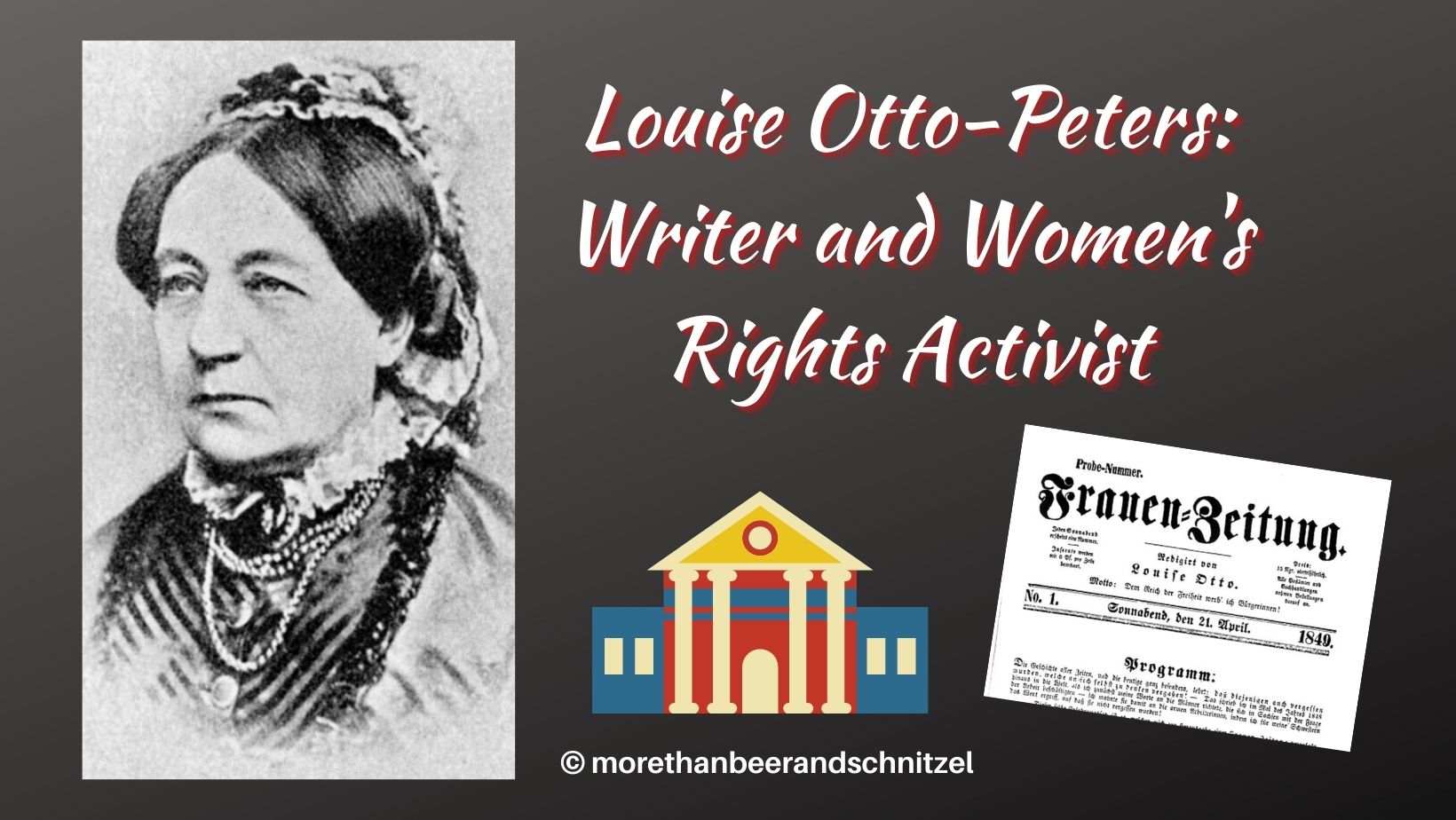Louise Otto-Peters was born on March 26th, 1819. She was a writer, political activist, co-founder of the General German Women’s Association, and leader of the women’s movement. She and her fellow campaigners fought for women’s rights: the right to (higher) education and to work for a living. She died on March 13th, 1895.
Childhood and Early Adulthood
Louise Otto was born into a wealthy family, and while she received an education she wasn’t allowed to go to school after her confirmation. By the time she was 16, both her parents had died but she and her two older sisters were able to stay in the family’s house with an aunt. They mostly lived off their inheritance but Louise started writing and eventually was able to earn money that way. She often published under the pseudonym “Otto Stern“.


Political Activism
She published several poems and novels, all of them with a liberal agenda, drawing attention of the poor working conditions of the industrial workers, and especially the women workers. She felt that it wasn’t only a woman’s right to participate in politics but their duty.
During the March Revolution 1848/49, she founded and published the “Frauen-Zeitung” (Women Newspaper). The paper was censored, Otto was interrogated, her house was searched, and eventually the newspaper was banned.
In 1858, she married August Peters who had been in prison for fighting in the Revolution. Together, they moved to Leipzig, published the “Mitteldeutsche Volkszeitung” until August died in 1864.

Women's Associations
With Auguste Schmidt, Ottilie von Steyber and Henriette Goldschmidt, Otto-Peters founded the Women’s Education Association of Leipzig (Leipziger Frauenbildungsverein) in 1865. It offered classes to women at a low cost to provide them opportunities to broaden their horizon and to prepare them to lead a full life.
These four women also founded the General German Women’s Association (Allgemeiner Deutscher Frauenverein (ADF), 1865) whose chairwoman Louise Otto-Peters was for three decades. The association didn’t permit men to become members. The association’s goals were: women’s right to education, women’s right to work, access to universities for women, and reform of discriminatory marriage and family laws. Otto-Peters made sure that women workers were not only seen as people who were in need for care and educational help but that they should be seen as people who would fight for their rights, political and otherwise.

However, the association was not actively promoting the fight for political rights, like the right to vote, since that would have meant dissolution by the police. They focused on projects and goals that were actionable and had a chance to impact women and women’s lives directly.
The association and its members were mostly located in Saxony but with its journal Neue Bahnen (New Paths), they were able to reach middle and upper class women in all of Germany and to exchange ideas with each other.
The association dissolved itself in 1933 when the Nazis took power. In 1947, it was re-founded under the name Deutscher Staatsbürgerinnen Verband (German Association of Female Citizens).


Gartenlaube (1883) „Die Führerinnen der Frauenbewegung in Deutschland. Originalzeichnung von Adolf Neumann. Fräulein Marie Calm. Frau Henriette Goldschmidt. Frau Louise Otto-Peters. Frau Lina Morgenstern. Fräulein Auguste Schmidt. Fräulein Jenny Hirsch. Frau Anna Schepeler-Lette.“
Sources and Resources
- Wiki – Louise Otto-Peters – dt
- Wiki – ADF – dt
- towards emancipation? – General German Women’s Association
- “Women’s right to earn a living (1866)” – text in English
- Frontiers in Sociology
- DW – Pioneers of the Women’s Rights Movement in Germany
- YouTube Playlist


